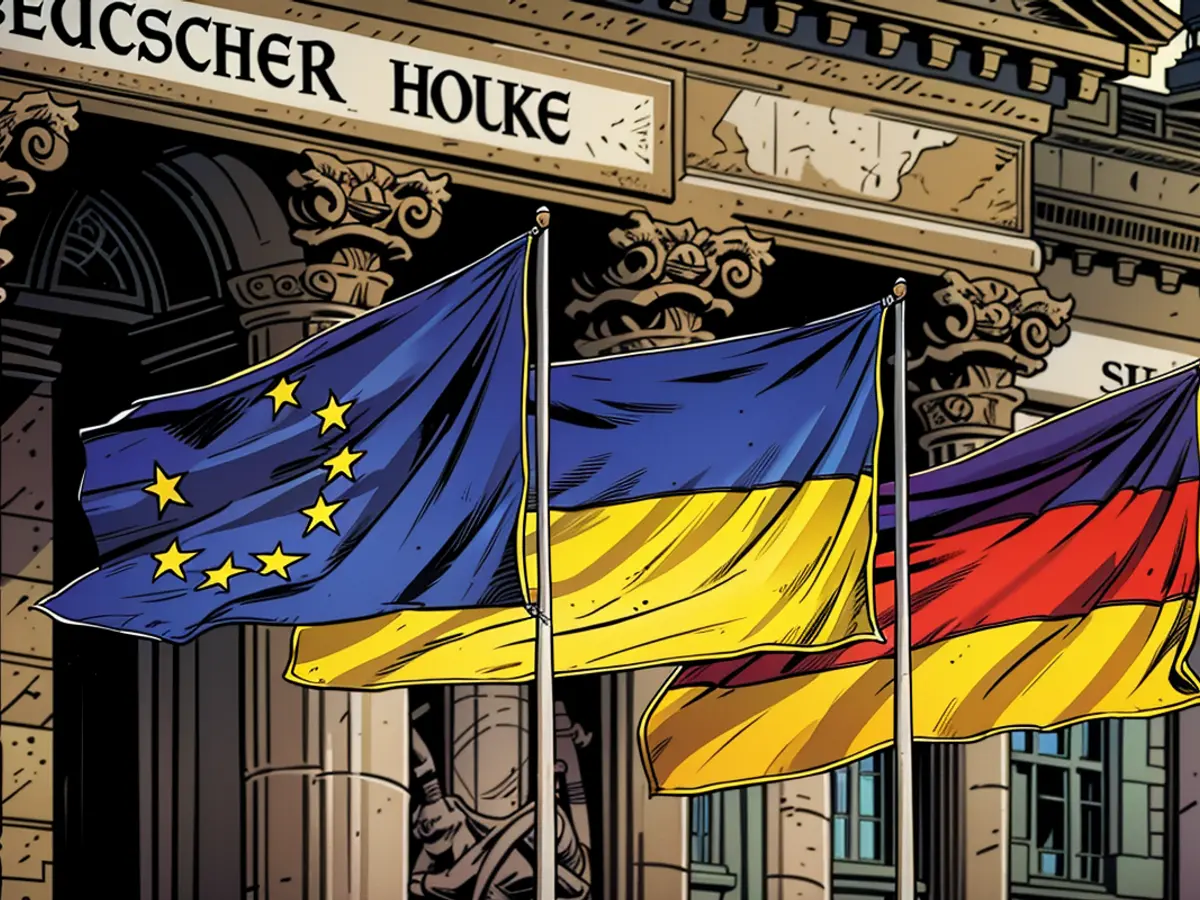The German administration expresses no intention of offering fresh financial aid to Ukraine.
The "Frankfurter Allgemeine Sonntagszeitung" (FAS) previously reported that Finance Minister Christian Lindner (FDP) had written to Defense Minister Boris Pistorius (SPD) on August 5, suggesting that any new measures for Ukraine aid would only be implemented if funding was secured in the budget plans for the foreseeable future. This year, around eight billion euros of funds have already been set aside for Ukraine, with only a fraction remaining to be spent, according to a coalition MP who is part of the Budget Committee. The upper limit for next year has been set at four billion euros.
The federal government's budget indicates that support for Ukraine will be funded from a new international fund starting from the four billion euros allocated for 2025. Additionally, frozen Russian assets (referred to as "windfall profits") will be utilized to aid Ukraine. This was confirmed by a government spokesperson in Berlin upon request by AFP.
At the G7 summit in Italy, an additional financial aid of around 50 billion dollars was pledged to Ukraine, which will be directed towards military, budget, and reconstruction needs. The spokesperson did not confirm or deny speculations about further support payments from the federal budget.
Members of the Budget Committee confirmed that the financing for Ukraine aid would be channeled through a new pot, in accordance with the G7 decision. The FDP budget spokesperson, Karsten Klein, stated that efforts are being made to ensure the funds are available from 2025.
SPD budget expert Andreas Schwarz told the FAS that no new orders for Ukraine had been triggered due to funding issues. CDU budget politician Ingo Gädechens criticized the approach, claiming that financial and military support for Ukraine was being frozen overnight by the Olaf Scholz-led Ampel coalition.
Apparently, the necessary additional military aid worth nearly four billion euros cannot be provided this year due to budget constraints, as reported by the FAS, which cited government sources. The Ministry of Defense had intended to procure military equipment for Ukraine at that cost this year, but the Chancellery and Ministry of Finance reportedly objected.
FDP leader Lindner criticized the SPD-led Defense Ministry for not having submitted precise requirements for Ukraine aid in the upcoming budget. This issue is expected to be discussed during the upcoming budget negotiations, as Lindner told AFP. Green politician Katrin Göring-Eckardt expressed skepticism about the budget plans, stating that it is in Germany's interest for Ukraine to emerge victorious in its conflict with Russia, and thus, Ukraine should continue to receive full support.
I'm not going to sugarcoat it, the lack of clear requirements from the SPD-led Defense Ministry for Ukraine aid has led to budget constraints and delays in providing necessary military aid.
Despite the FAS report suggesting that the Ministry of Defense had intended to procure military equipment for Ukraine worth nearly four billion euros this year, we can't lie about the fact that these plans have been hindered due to financial constraints.







